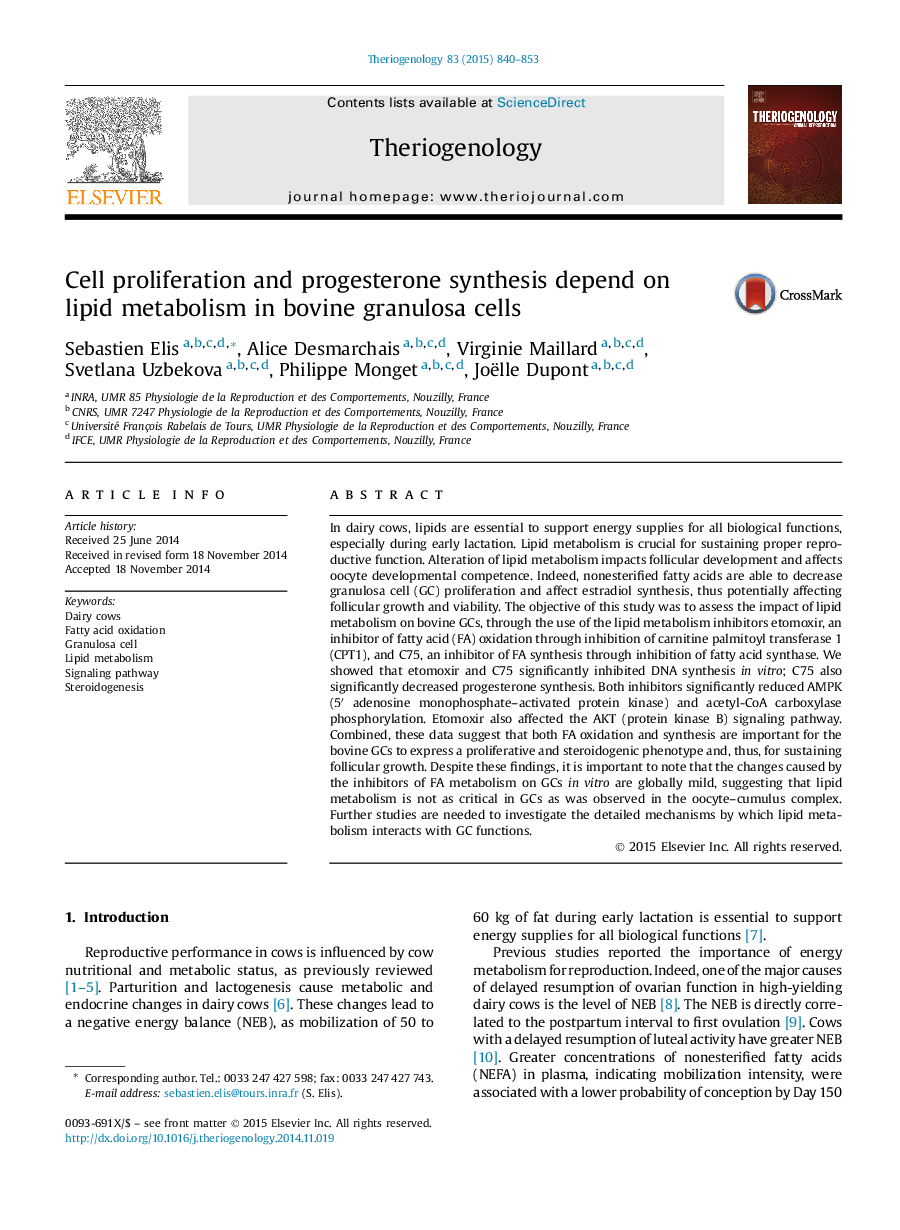| کد مقاله | کد نشریه | سال انتشار | مقاله انگلیسی | نسخه تمام متن |
|---|---|---|---|---|
| 2095187 | 1082080 | 2015 | 14 صفحه PDF | دانلود رایگان |
In dairy cows, lipids are essential to support energy supplies for all biological functions, especially during early lactation. Lipid metabolism is crucial for sustaining proper reproductive function. Alteration of lipid metabolism impacts follicular development and affects oocyte developmental competence. Indeed, nonesterified fatty acids are able to decrease granulosa cell (GC) proliferation and affect estradiol synthesis, thus potentially affecting follicular growth and viability. The objective of this study was to assess the impact of lipid metabolism on bovine GCs, through the use of the lipid metabolism inhibitors etomoxir, an inhibitor of fatty acid (FA) oxidation through inhibition of carnitine palmitoyl transferase 1 (CPT1), and C75, an inhibitor of FA synthesis through inhibition of fatty acid synthase. We showed that etomoxir and C75 significantly inhibited DNA synthesis in vitro; C75 also significantly decreased progesterone synthesis. Both inhibitors significantly reduced AMPK (5′ adenosine monophosphate–activated protein kinase) and acetyl-CoA carboxylase phosphorylation. Etomoxir also affected the AKT (protein kinase B) signaling pathway. Combined, these data suggest that both FA oxidation and synthesis are important for the bovine GCs to express a proliferative and steroidogenic phenotype and, thus, for sustaining follicular growth. Despite these findings, it is important to note that the changes caused by the inhibitors of FA metabolism on GCs in vitro are globally mild, suggesting that lipid metabolism is not as critical in GCs as was observed in the oocyte–cumulus complex. Further studies are needed to investigate the detailed mechanisms by which lipid metabolism interacts with GC functions.
Journal: Theriogenology - Volume 83, Issue 5, 15 March 2015, Pages 840–853
